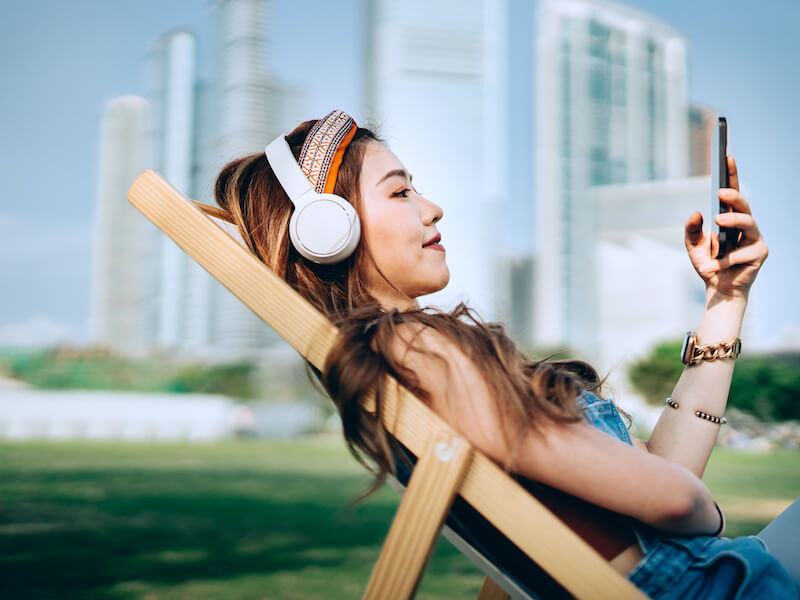
Aiden loves music. He listens to Spotify while at work, switches to Pandora while jogging, and he has a playlist for everything: gaming, gym time, cooking, and everything else. His headphones are almost always on, his life a totally soundtracked event. But the very thing that Aiden enjoys, the loud, immersive music, could be causing permanent harm to his hearing.
There are ways to enjoy music that are healthy for your ears and ways that are not so safe. But the more hazardous listening choice is often the one most of us choose.
How does listening to music lead to hearing loss?
Over time, loud noises can cause degeneration of your hearing abilities. We’re used to thinking of hearing loss as an issue caused by aging, but current research is revealing that hearing loss isn’t an inherent part of aging but is instead, the outcome of accumulated noise damage.
Younger ears that are still developing are, as it turns out, more vulnerable to noise-related damage. And yet, young adults are more inclined to be dismissive of the long-term dangers of high volume. So because of extensive high volume headphone use, there has become an epidemic of hearing loss in younger individuals.
Can you enjoy music safely?
Unregulated max volume is obviously the “hazardous” way to enjoy music. But simply turning the volume down is a less dangerous way to listen. Here are a couple of basic guidelines:
- For adults: No more than 40 hours of weekly listening on a device and keep the volume lower than 80dB.
- For teens and young children: 40 hours is still okay but reduce the volume to 75dB.
About five hours and forty minutes per day will be about forty hours every week. That may seem like a lot, but it can go by fairly quickly. Even still, most individuals have a fairly sound concept of keeping track of time, it’s something we’re trained to do effectively from a really young age.
The more challenging part is keeping track of your volume. Volume isn’t gauged in decibels on most smart devices such as TVs, computers, and smartphones. Each device has its own arbitrary scale. Maybe it’s 1-100. Or it could be 1-10. You might not have any idea how close to max volume you are or even what max volume on your device is.
How can you keep tabs on the volume of your tunes?
There are a few non-intrusive, simple ways to figure out just how loud the volume on your music really is, because it’s not all that easy for us to conceptualize exactly what 80dB sounds like. Differentiating 75 from, let’s say, 80 decibels is even more puzzling.
That’s why it’s greatly recommended you utilize one of numerous free noise monitoring apps. Real-time volumes of the noise around you will be available from both iPhone and Android apps. That way you can keep track of the dB level of your music in real-time and make adjustments. Or, while listening to music, you can also modify your settings in your smartphone which will efficiently let you know that your volume is too high.
The volume of a garbage disposal
Your garbage disposal or dishwasher is generally around 80 decibels. That’s not too loud. It’s an important observation because 80dB is about as loud as your ears can handle without damage.
So you’ll want to be more aware of those times at which you’re moving beyond that decibel threshold. And limit your exposure if you do listen to music over 80dB. Maybe minimize loud listening to a song rather than an album.
Listening to music at a loud volume can and will cause you to develop hearing issues over the long term. Hearing loss and tinnitus can be the result. Your decision making will be more educated the more mindful you are of when you’re entering the danger zone. And ideally, those decisions lean towards safer listening.
Still have questions about keeping your ears safe? Call us to go over more options.
